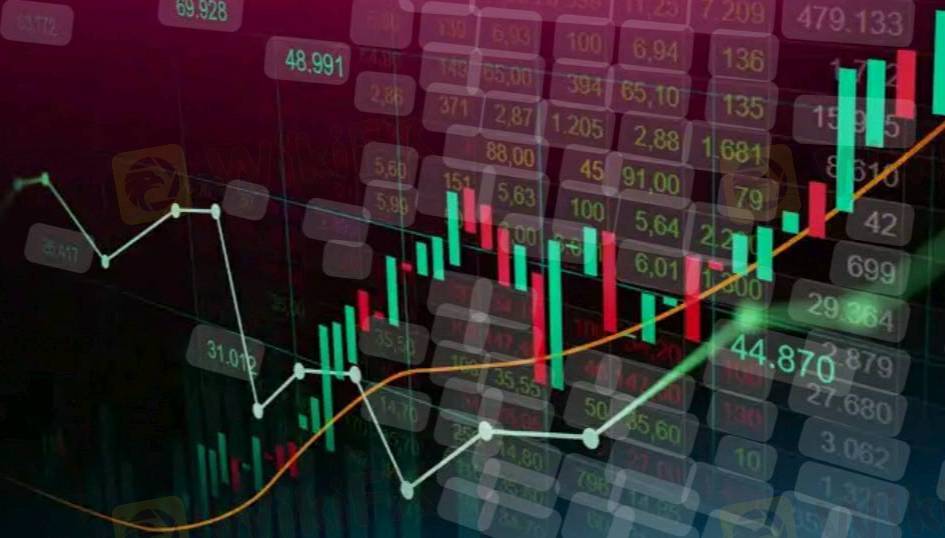
2025-02-01 00:14
IndustryHow forex trading affects GNP.
#firstdealofthenewyearAKEEL
Forex trading affects Gross National Product (GNP) in multiple ways, primarily through its impact on trade, investments, inflation, and overall economic stability. Here’s how forex trading influences GNP:
1. Exchange Rate Impact on Trade (Exports & Imports)
Currency Depreciation:
A weaker currency makes exports cheaper for foreign buyers, increasing demand for domestic goods and boosting net exports, which positively contributes to GNP.
However, it also makes imports more expensive, which can increase production costs for businesses relying on foreign inputs.
Currency Appreciation:
A stronger domestic currency makes imports cheaper but reduces the competitiveness of exports, potentially lowering net exports and negatively affecting GNP.
2. Foreign Direct Investment (FDI) and Capital Inflows
Forex trading influences currency value, impacting investor confidence.
A stable forex market attracts FDI, leading to job creation and higher productivity, positively affecting GNP.
A highly volatile forex market can discourage investment due to uncertainty, reducing capital inflows and slowing economic growth.
3. Inflation and Purchasing Power.
Forex fluctuations impact inflation, affecting domestic consumption and production:
Depreciation increases import prices, leading to inflation and reducing consumer purchasing power.
Appreciation lowers import costs, reducing inflationary pressure but potentially hurting local producers due to cheaper foreign goods.
4. Impact on Remittances
In economies with high remittance inflows, forex movements significantly affect GNP:
A weaker domestic currency increases the value of remittances, boosting national income.
A stronger domestic currency reduces remittance value, potentially decreasing its contribution to GNP.
5. Government Debt and Interest Rates
Many countries have foreign-denominated debt:
If the domestic currency depreciates, debt repayments become more expensive, straining government budgets.
If the currency appreciates, external debt becomes easier to service, freeing up resources for growth-oriented investments.
6. Speculative Forex Trading and Financial Market Stability
Excessive forex speculation can lead to exchange rate volatility, affecting investor confidence and economic stability.
If speculation leads to a currency crisis, businesses and governments may struggle with financial planning, negatively impacting GNP.
Conclusion
Forex trading affects GNP by influencing trade balances, investment flows, inflation, remittances, and financial stability. Countries with well-managed exchange rate policies and strong economic fundamentals can benefit from forex movements, while those with excessive volatility may experience economic instability.
#firstdealofthenewyearAKEEL
Like 0
AKEEL_MOHD
Trader
Hot content
Industry
Event-A comment a day,Keep rewards worthy up to$27
Industry
Nigeria Event Giveaway-Win₦5000 Mobilephone Credit
Industry
Nigeria Event Giveaway-Win ₦2500 MobilePhoneCredit
Industry
South Africa Event-Come&Win 240ZAR Phone Credit
Industry
Nigeria Event-Discuss Forex&Win2500NGN PhoneCredit
Industry
[Nigeria Event]Discuss&win 2500 Naira Phone Credit
Forum category

Platform

Exhibition

Agent

Recruitment

EA

Industry

Market

Index
How forex trading affects GNP.
 Nigeria | 2025-02-01 00:14
Nigeria | 2025-02-01 00:14#firstdealofthenewyearAKEEL
Forex trading affects Gross National Product (GNP) in multiple ways, primarily through its impact on trade, investments, inflation, and overall economic stability. Here’s how forex trading influences GNP:
1. Exchange Rate Impact on Trade (Exports & Imports)
Currency Depreciation:
A weaker currency makes exports cheaper for foreign buyers, increasing demand for domestic goods and boosting net exports, which positively contributes to GNP.
However, it also makes imports more expensive, which can increase production costs for businesses relying on foreign inputs.
Currency Appreciation:
A stronger domestic currency makes imports cheaper but reduces the competitiveness of exports, potentially lowering net exports and negatively affecting GNP.
2. Foreign Direct Investment (FDI) and Capital Inflows
Forex trading influences currency value, impacting investor confidence.
A stable forex market attracts FDI, leading to job creation and higher productivity, positively affecting GNP.
A highly volatile forex market can discourage investment due to uncertainty, reducing capital inflows and slowing economic growth.
3. Inflation and Purchasing Power.
Forex fluctuations impact inflation, affecting domestic consumption and production:
Depreciation increases import prices, leading to inflation and reducing consumer purchasing power.
Appreciation lowers import costs, reducing inflationary pressure but potentially hurting local producers due to cheaper foreign goods.
4. Impact on Remittances
In economies with high remittance inflows, forex movements significantly affect GNP:
A weaker domestic currency increases the value of remittances, boosting national income.
A stronger domestic currency reduces remittance value, potentially decreasing its contribution to GNP.
5. Government Debt and Interest Rates
Many countries have foreign-denominated debt:
If the domestic currency depreciates, debt repayments become more expensive, straining government budgets.
If the currency appreciates, external debt becomes easier to service, freeing up resources for growth-oriented investments.
6. Speculative Forex Trading and Financial Market Stability
Excessive forex speculation can lead to exchange rate volatility, affecting investor confidence and economic stability.
If speculation leads to a currency crisis, businesses and governments may struggle with financial planning, negatively impacting GNP.
Conclusion
Forex trading affects GNP by influencing trade balances, investment flows, inflation, remittances, and financial stability. Countries with well-managed exchange rate policies and strong economic fundamentals can benefit from forex movements, while those with excessive volatility may experience economic instability.
#firstdealofthenewyearAKEEL
Like 0
I want to comment, too
Submit
0Comments

There is no comment yet. Make the first one.

Submit
There is no comment yet. Make the first one.